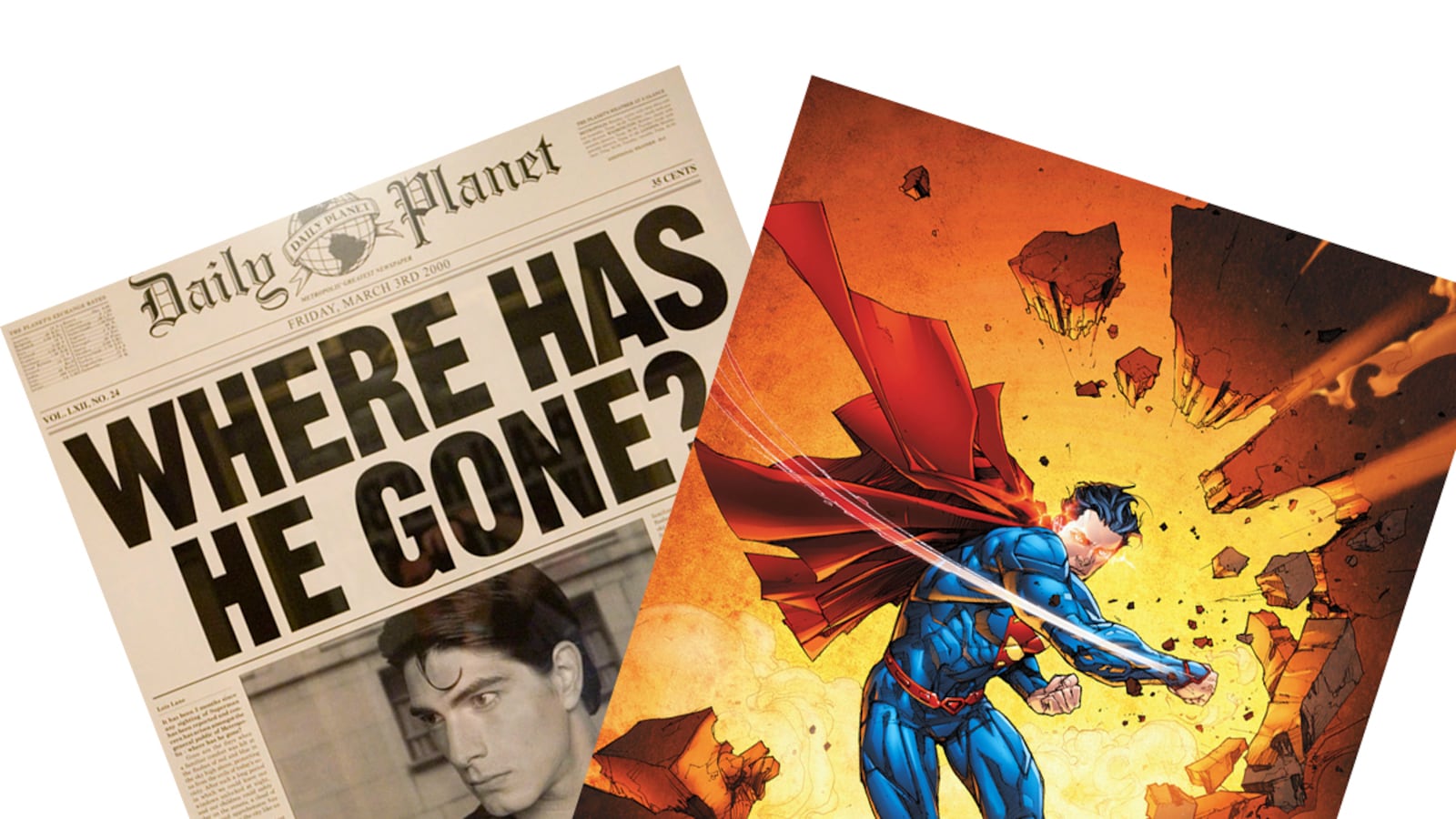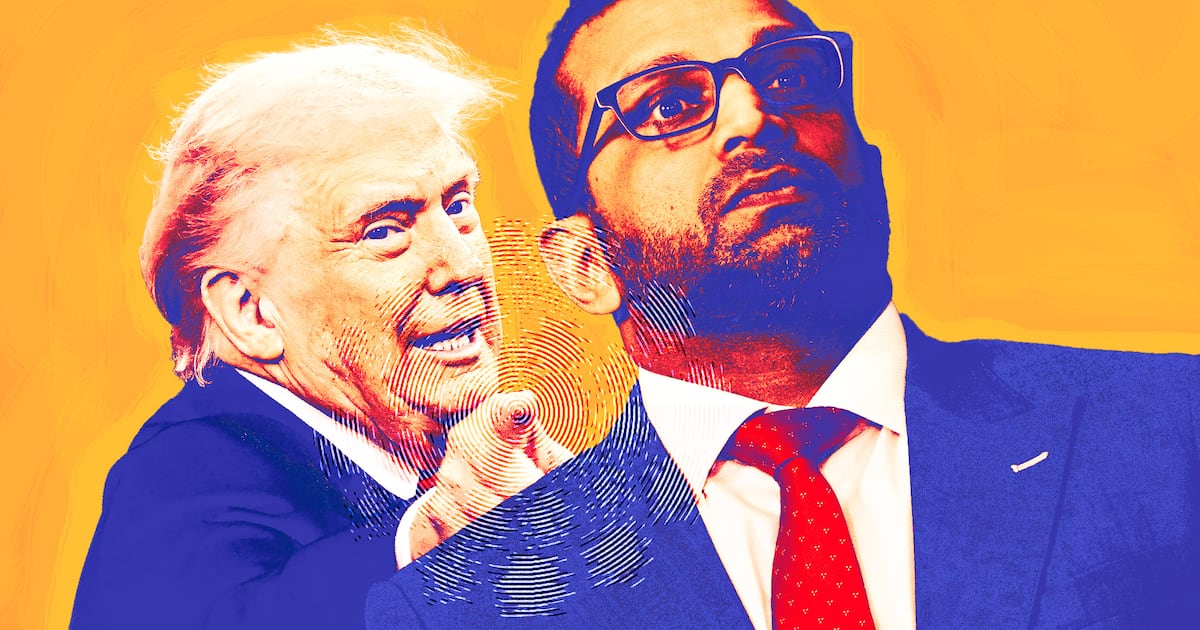Clark Kent can bench press six sextillion tons, reverse the rotation of the earth, and fly to the office in six seconds. Just don’t ask him to write a listicle about Superman.
If most headlines are to be believed, Clark has used his super strength to usher in the end of journalism. In DC’s latest installment of the comic, Superman #13, the once mild-mannered reporter flips the bird to the entertainment-obsessed journalism business and quits his job at The Daily Planet. Before marching out of the fictional newspaper, Superman’s 27-year-old alter ego gives a melodramatic speech about the ideals of journalism and the ability of words to “change the course of rivers.”
“Facts have been replaced by opinions. Information has been replaced by entertainment. Reporters have become stenographers,” Kent gripes. “I am not the only one who believes in the power of the press—the fact that we need to stand up for the truth. For justice. And yeah—I’m not ashamed to say—the American way.”
The Man of Steel is lucky he quit. He should have been canned.
To be fair, The Daily Planet has never been a stable news organization. It has survived everything from the apocalyptic monster Doomsday to publishing issues from Superman’s icy printing press in the Fortress of Solitude. Batman even owned the paper at one point. An Onion headline from this summer says it all: “Economically Healthy ‘Daily Planet’ Now Most Unrealistic Part of Superman Universe.’
Even so, it’s difficult to sympathize with Kent’s “Jerry Maguire” moment. This is the first time Superman has quit the paper in “The New 52” series—a universe that basically rebooted the Superman mythology from scratch in 2011—but it’s hardly Clark’s first break from print reporting. And despite some early potential, it’s not like he was ever in the running for a Pulitzer.
Let’s take a look at his not-so-super résumé.
When the hero was first launched in 1938’s Action Comics #1 he was a beat reporter at The Daily Star. In this “Golden Age” universe—or in other words, “the storyline that doesn’t really count”—Clark works his way up to be editor in chief.

The “Silver Age”—or the mid ’50s to ’70s, when comics boomed—saw Clark parlay an undergrad degree in journalism into an entry-level position at the bankrupt newspaper The Daily Planet. The kid from Smallville cemented his job by helping Lois Lane and Jimmy Olsen snag some relatively easy scoops: exclusive Superman photos and interviews that boosted circulation by 700 percent.
Later in the ’70s, the Galaxy Broadcasting System merged a local news station with Metropolis’s paper and made Clark an evening news anchor. A mild-mannered reporter, however, doesn’t translate seamlessly to television. Clark had the “charisma of a grape.”
Two decades after that, Clark was fired from the daily after arch-villain Lex Luthor, upset by negative coverage of his evil empire, purchased and then closed down The Daily Planet. Ahead of his time, Luthor launched the horribly slanted news website “LexCom.” This whole arc was wiped out, or course, after Lois Lane struck a deal to kill one story of Lex’s choosing. An ethically questionable action, at best.
And in 2012’s momentous issue, Clark— despite being “in the field” for five days —hasn’t filed a beat story on Superman all week. Instead, he waltzes into the office, inexplicably dressed in a red Smallville hoodie and blue jeans. (Journalists do tend to err on the casual side of fashion, but Superman is unprofessionally lax.) And with only five years of experience, Clark calls himself a “grizzled ink-stained wretch” and then lectures his editor about the definition of “news.” He’s that guy in the newsroom.
It gets worse. Superman does some in-office phone hacking on Lois Lane’s cellphone, only to discover she doesn’t have the hots for him. When the boss of Galaxy Broadcasting, which owns the paper, publicly scolds Clark for surfing the Internet for city housing-code violations instead of reporting on Superman, the Man of Steel loses it and mouths off that he’s “looking for the news, not making it.”
Clark, it’s incredibly hard to defend you. It’s not like you’re reporting on Kim Kardashian’s underwear. Your beat is Superman, the most powerful person in the history of the universe. The next panel of the comic literally shows the hero punching the lights out of a skyscraper-size Kryptonian creature ravaging Metropolis. A monster threatening to annihilate mankind? Yeah, that qualifies as front-page “news.”
As comic-book heroes evolve, it’s becoming clear that crimefighters aren’t fit for journalism. Peter Parker was fired from The Daily Bugle for digitally altering one of his photographs to stop a bad guy. Ninja Turtles ally April O’Neil was booted from her job as a TV reporter for getting tangled up in sewer adventures. And investigative reporter Tintin is always gallivanting around the world, but rarely files a story. An editor’s going to notice that eventually.
So this modern and hip Superman’s fight isn’t really against the decline of journalism—it’s a classic conflict of interest. How do you objectively cover the ultimate reality and superhero star when you actually are that superhero? Maybe these questions are too deep for the panels of a 21-page comic book.






